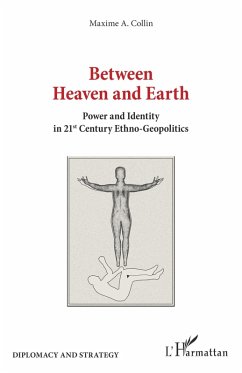Our understanding of modern power politics usually relies on simple, linear narratives which tend to obfuscate complex systems. Sociological and historical connections in particular are eschewed, in favor of national (hi)stories and short-term analysis. Yet actors tend to found their intents and actions on complex kinetics, rooted in their core identities. To study the way identity is built and expressed opens the way for a more comprehensive analysis of actors on the international stage, through a recontextualization of social competition and the mechanisms of fear, hate and sacrifice. These kinetics also shine a light on the new, contemporary facets of power, which no longer exists as a unilateral flux but rather as a combination of action, expression and shaping of the superstructure. The example of the East China Sea, one of the most crucial lynch points of the 21st century, offers concrete evidence of this model's heuristic and prospective value, and opens the way for further development of analysis of complex systems as a science.
Dieser Download kann aus rechtlichen Gründen nur mit Rechnungsadresse in A, B, BG, CY, CZ, D, DK, EW, E, FIN, F, GR, HR, H, IRL, I, LT, L, LR, M, NL, PL, P, R, S, SLO, SK ausgeliefert werden.









